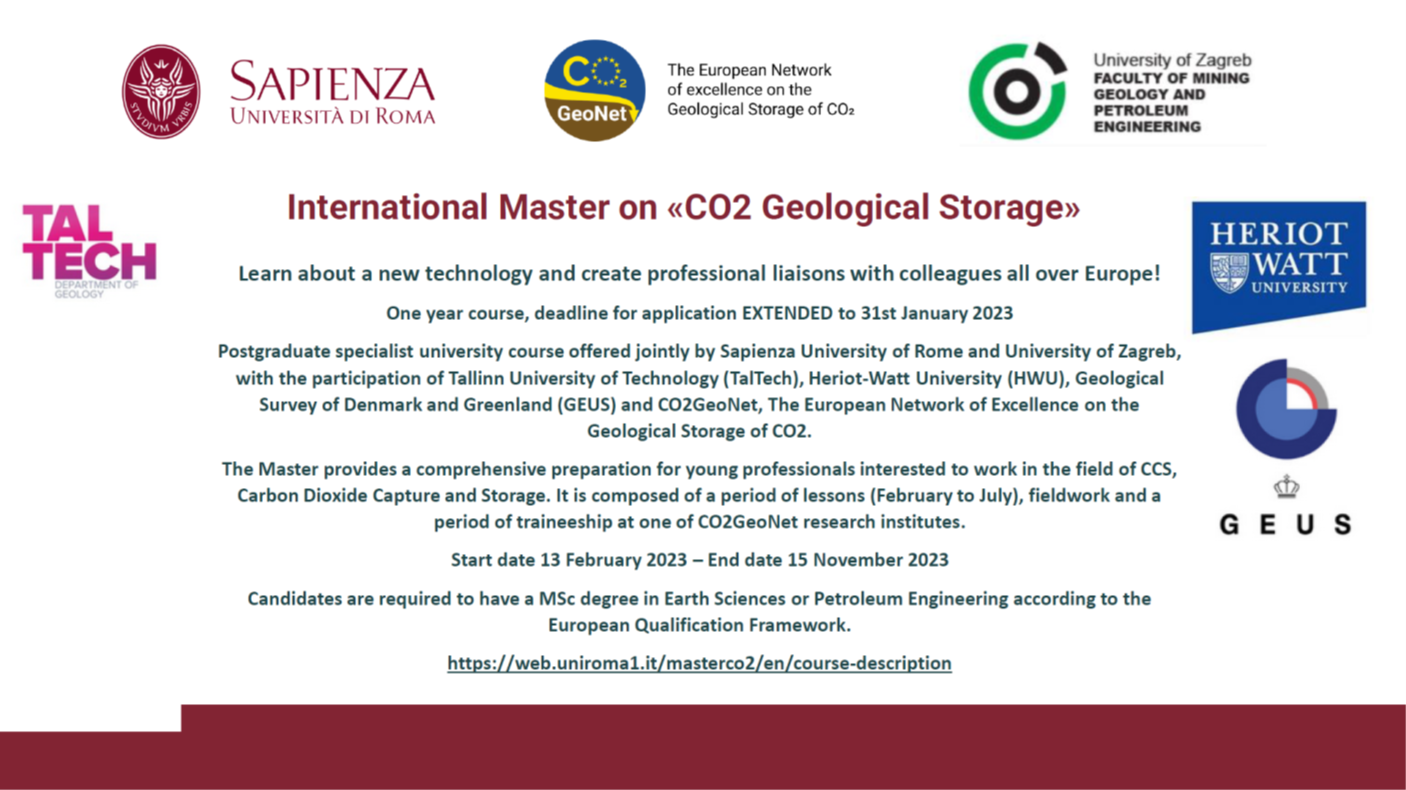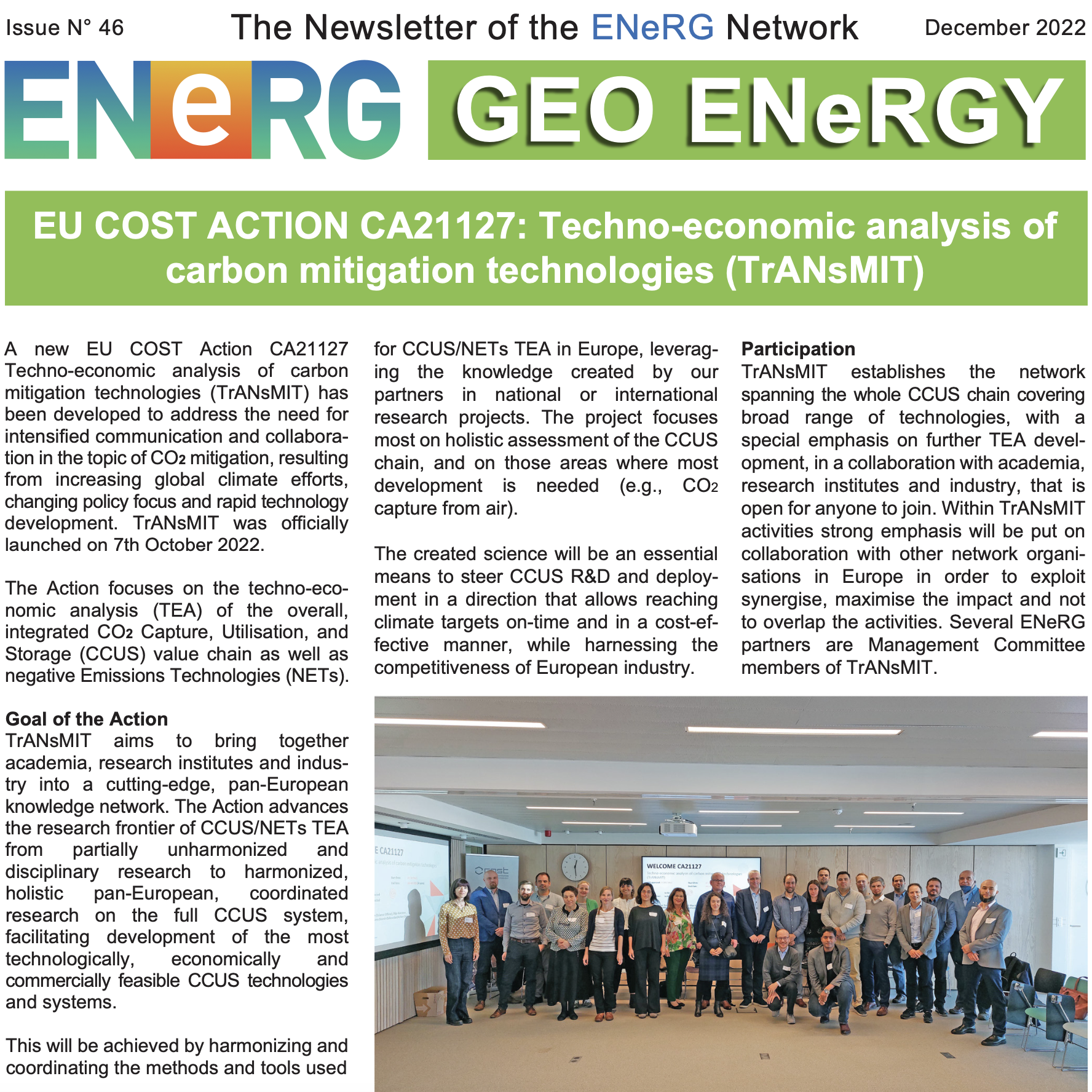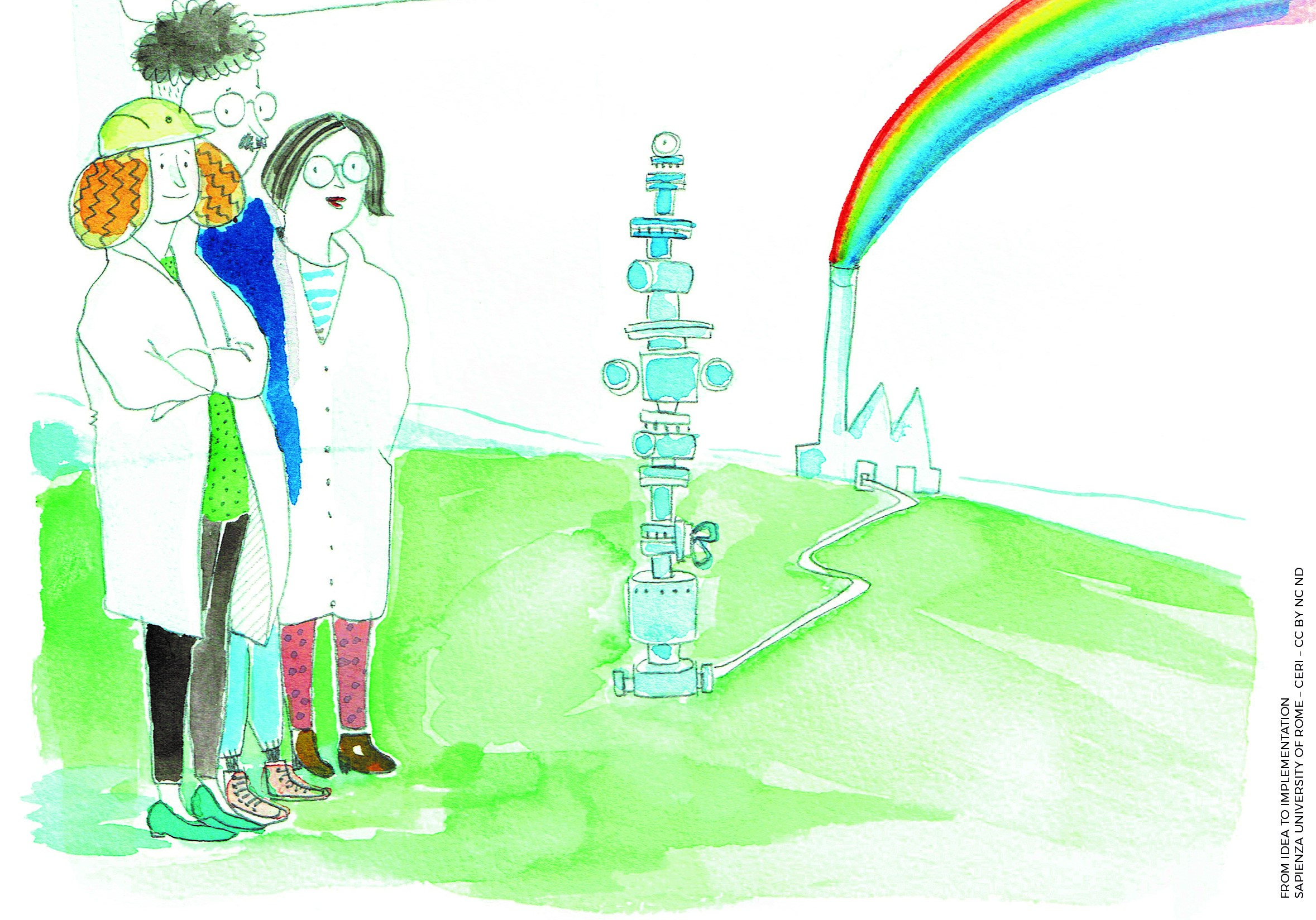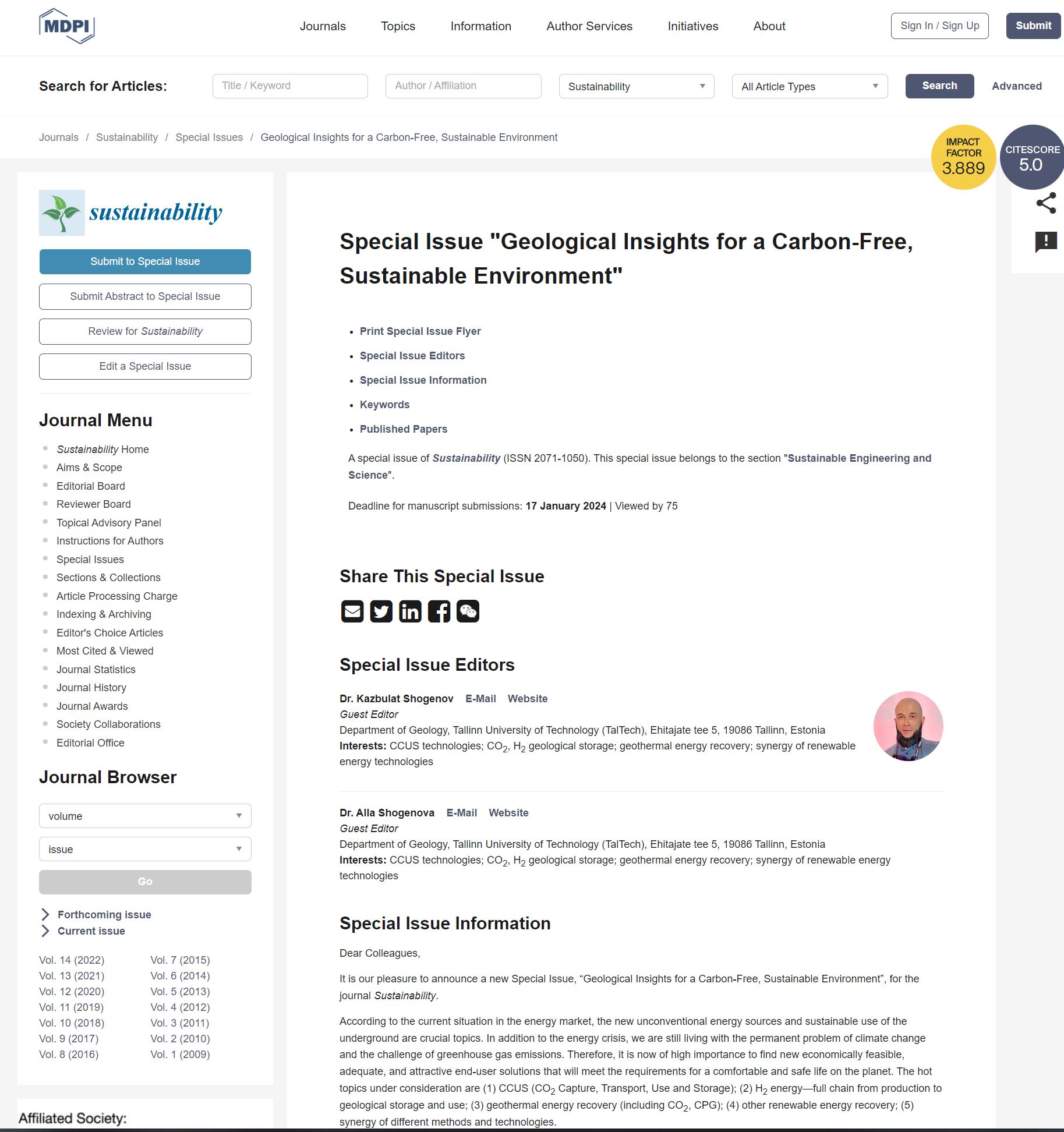International Master CO2 Geological Storage – Deadline extended to 31st January 2023!
Learn about new technology and create professional liaisons with colleagues all over Europe! https://web.uniroma1.it/masterco2/en
Zagreb University together with the Sapienza University of Rome and the participation of the Heriot-Watt University of Edinburgh, Tallinn University of Technology and the Geological Survey of Denmark and Greenland GEUS are offering a one-year Postgraduate specialist university course (60 ECTS) on CO2 Geological Storage with the support of CO2GeoNet, the Network of Excellence on the Geological Storage of CO2. The proposing institutes are also partners of ENeRG.
The goal of the course is to provide the participants with the scientific and technical knowledge that needs to be addressed for the successful storage of CO2 in geological formations. The students of the Master will be trained on all aspects of CO2 Geological Storage, and they will be introduced to the scientific and professional community working on CO2 Geological Storage in Europe and beyond.
The call for the Academic year 2022-2023 is now open, and the deadline for application has been extended to 31st January 2023.
The Master provides a comprehensive preparation for young professionals interested to work in the field of CCS. It is composed of a period of lessons (February to July), fieldwork and a period of traineeship at one of CO2GeoNet research institutes.
The Master will present an overview of state-of-the-art CCS operations and research; it will focus on the technical and scientific considerations for CO2 injection and safety monitoring, the exploration of critical processes in laboratory studies, numerical modelling, and conclusively on sound and reliable storage capacity estimates, including the project economics, social aspects, and planning of mitigation measures in case regulatory requirements are not fully met.
The students will be able to understand the work of the different specialists involved in CCS projects (such as reservoir engineers/geologists, sedimentologists, stratigraphers, geophysicists, structural geologists, geochemical modellers, regulators, etc.), learn from high-level specialists, and connecting with the most advanced research institutes in Europe.
Carbon dioxide Capture and Storage (CCS) is a rapidly advancing field with many interdisciplinary scientific and technical challenges that are being addressed globally. This course is provided to prepare a new generation of young professionals who want to work on these topics.
More information at https://web.uniroma1.it/masterco2/en










